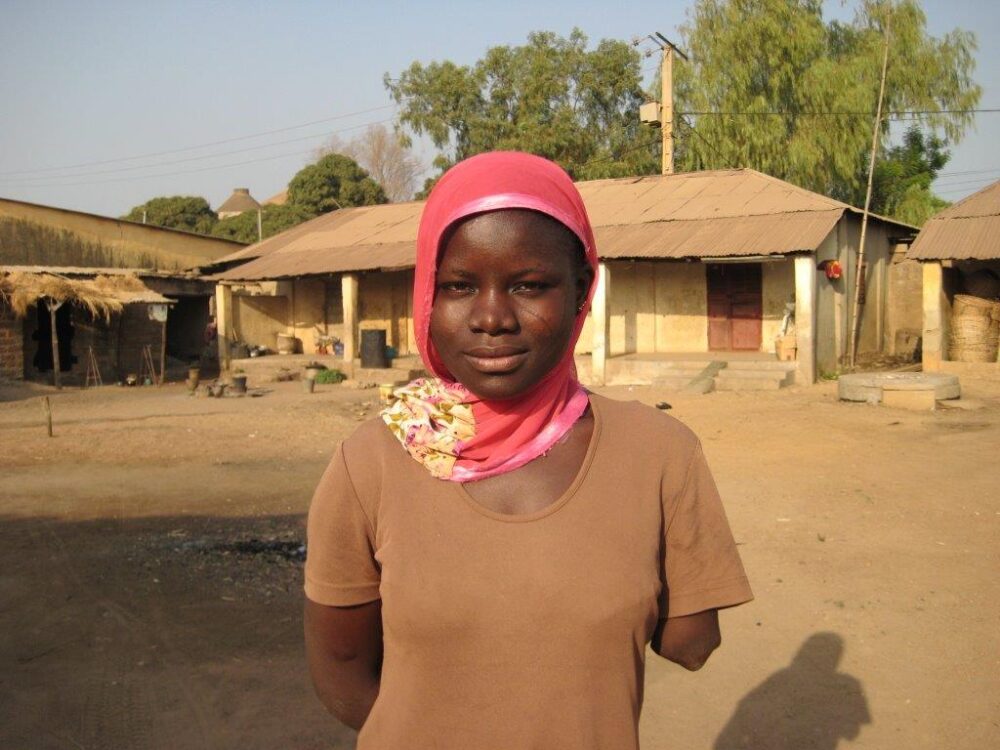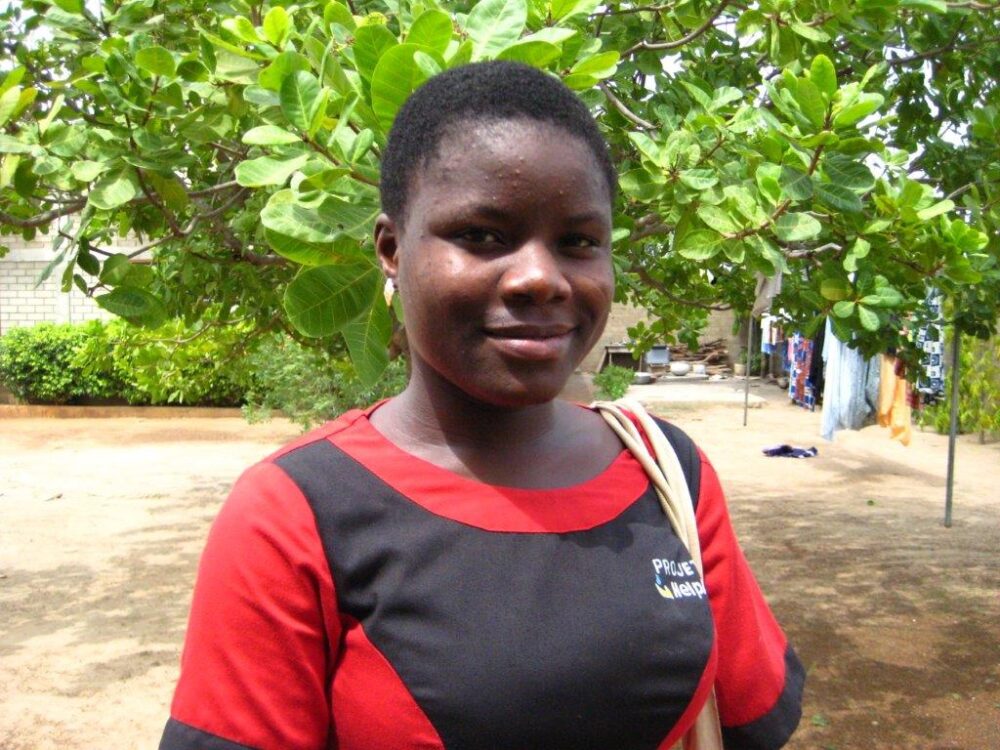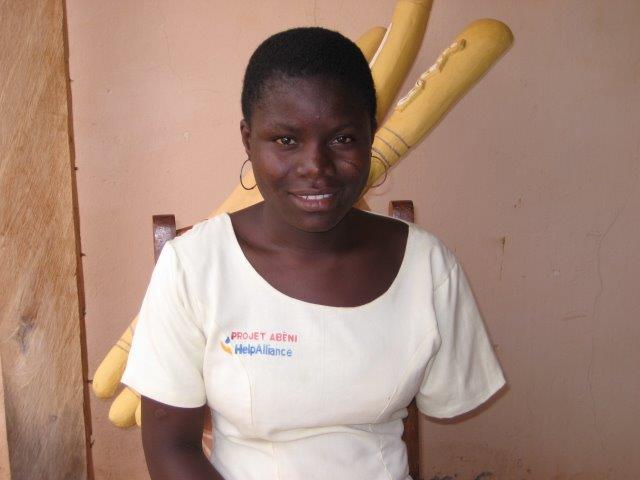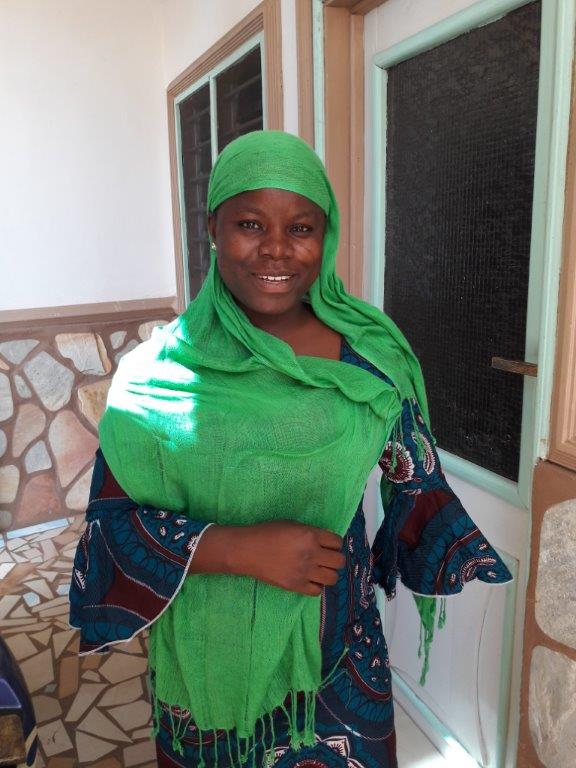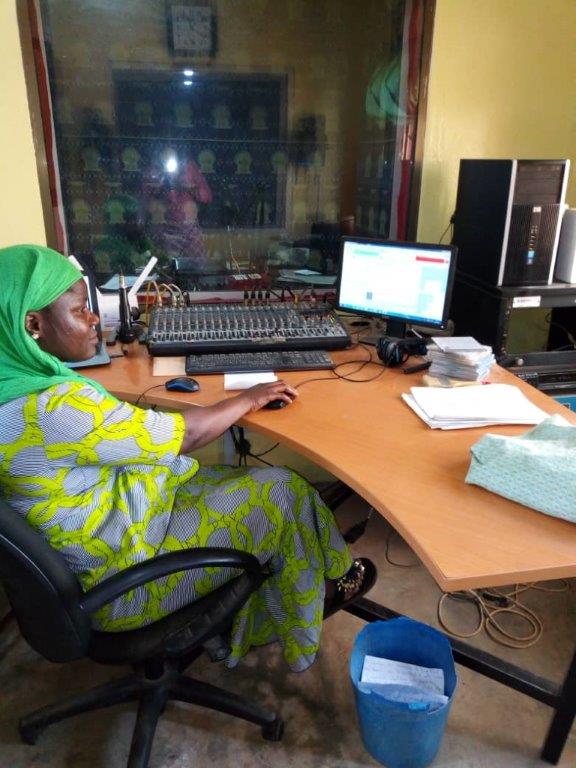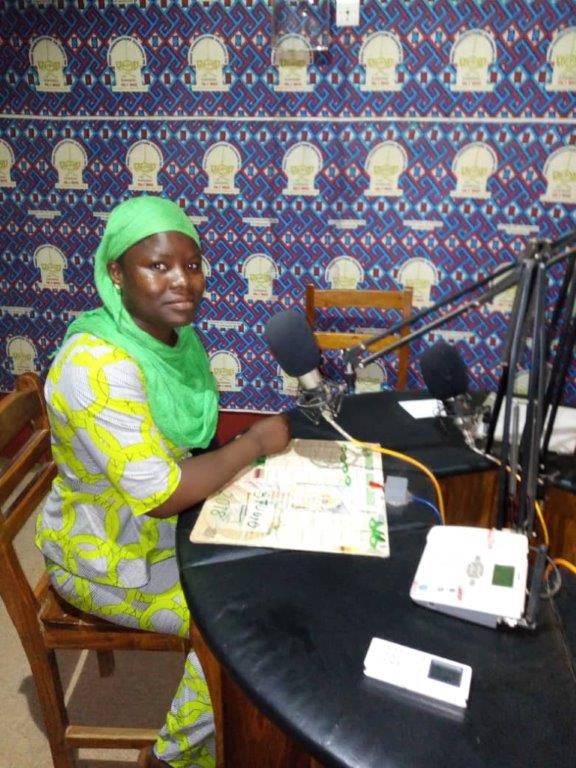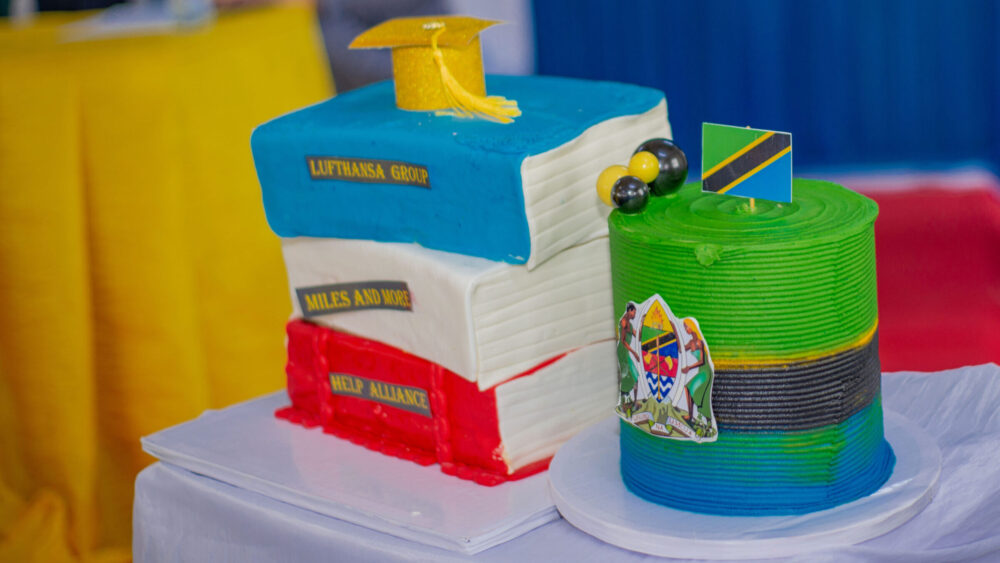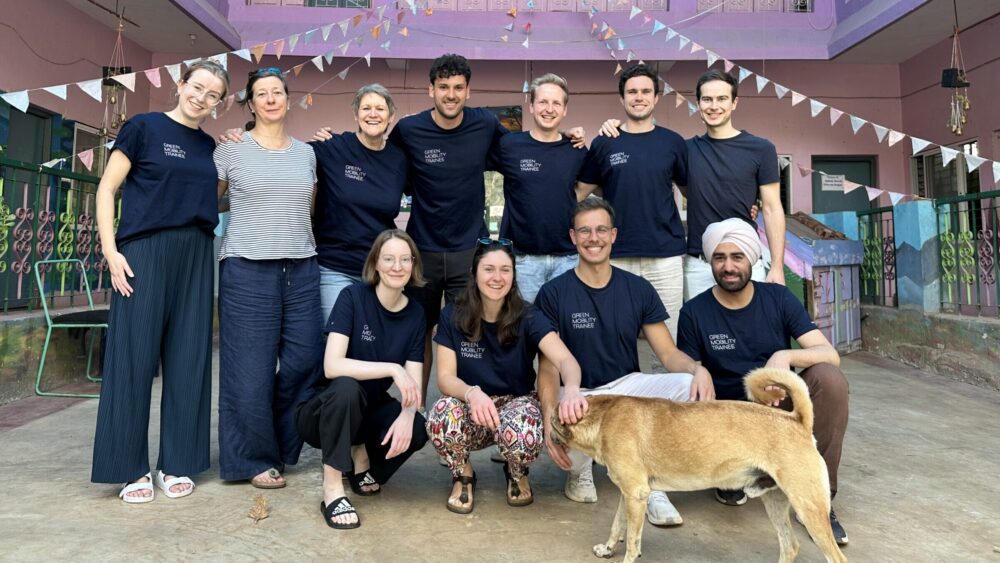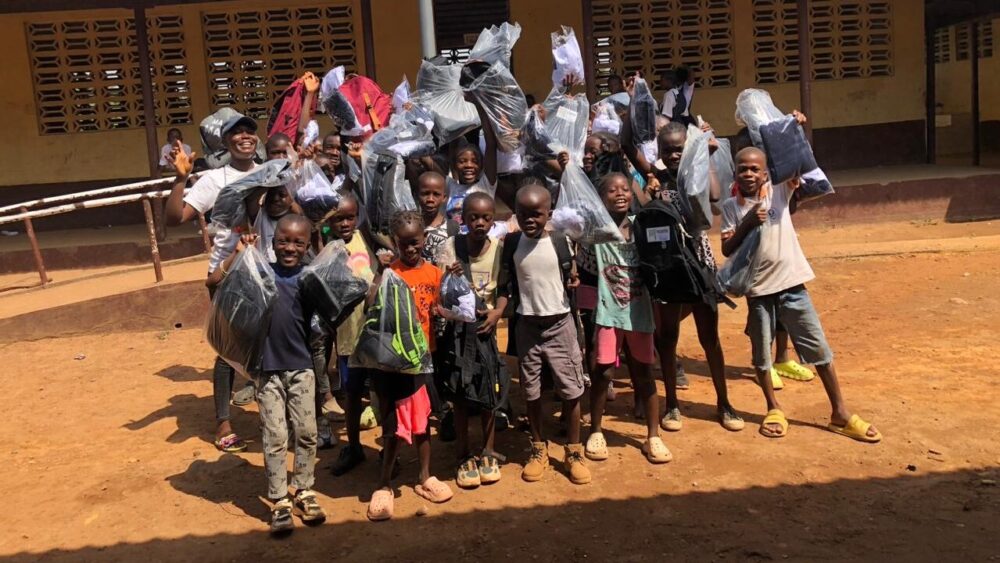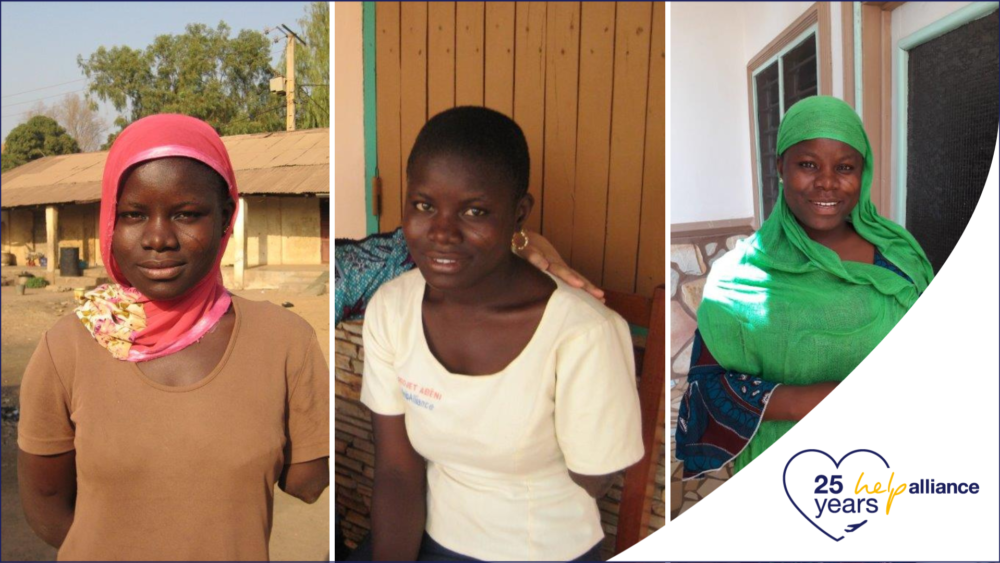
Sadia’s rocky road to happiness
Sadia’s story begins in 2009 in the city of Djougou in northwestern Benin. Sadia, who was 17 years old at the time, is the eldest of eight children, and before school started she would have to take care of her younger siblings. Sadia lived with her grandmother, her father and his two wives, uncles and aunts, cousins and her siblings in the house that her grandfather had built. And she shared a bedroom with her seven younger brothers and sisters.
Sadia’s parents had divorced when she was very young. While her two stepmothers allowed their own children to attend school, Sadia was kept home, where she had to do all the housework and additionally contribute to the family income by selling cloth at the market. It was only at the insistence of one of her uncles that Sadia was finally allowed to attend elementary school at the age of 11 and learn to read and write. Her stepmother did not approve, stopped her attending again and sent her back to the market to sell her cloth. Because of her work in the market, Sadia was only able to attend classes with frequent interruptions. But the resulting disruptions were unacceptable to the teachers concerned. Her father got one of her cousins to talk to the school principal. She was readmitted, and was able to complete four primary grades by the age of 16.
When she reached 16, Sadia’s parents ordered her to leave school and join them in Cotonou, Benin’s economic capital, about 500 kilometers south of Djougou. Her parents had ‘fled’ there to escape their loan debts. Sadia then had to work as a maid for a
wealthy family to pay off her parents’ debts. For a salary of 8,000 francs (€12) a month she had to wash, clean, cook, shop, take care of the children and more from morning to night. Any further schooling was out of the question. And her indebted parents forced
her to hand over her entire monthly wage. Sadia had been in this situation for about three months when, one day, she was sent to a distant market to do some shopping for her employers.
She was allowed to take a motorcycle taxi for the return trip. But she never returned. Her motorcycle taxi was involved in an accident on the way home. Sadia suffered serious injuries to her left leg, and her left arm had to be partially amputated. For three days she remained in hospital, unconscious. Nobody knew her, and her parents had no idea where she was.
On one of the following days, the motorcycle taxi driver inquired about her and notified her parents. Sadia spent seven months in hospital in all, and underwent several operations. She hides her disability today under long skirts, scarves and shawls. She refuses to wear a prosthetic arm, as she is fearful of further surgery.
Her ordeal in Cotonou had come to an end, though, and she was allowed to return to Djougou. Fortunately, her uncle took care of her and re-enrolled her in school. She was almost 18 years old by now; and, in addition to finding the school fees, there was a real
concern she might be unable to complete school because of the mandatory age limit. It was then that she learned about Abèni, a help alliance-sponsored project that assists girls in difficult family circumstances. As a result, she joined a community of other girls
in the new school year. And here she experienced care and respect and got all the help she needed to finish her basic schooling.
That was over ten years ago, and Sadia completed her collège education among the top five in her class. She earned her high school diploma in 2015 at the first attempt; and in the same year she began her studies at the university in Parakou. She finished her
course in geography, land planning and spatial planning last year, and is currently writing her thesis. While at university, Sadia also looked for jobs to earn some pocket money during the semester breaks. One such opportunity was at Solidarité, a Djougou-based regional radio station.
Five of the 17 applicants were shortlisted; and it was Sadia who landed the coveted intern position as a newsreader and presenter. She works there whenever she can, reading the news in French and the local Dendi language. She also makes and presents features, conducts interviews, hosts phone games and reports on local events. And it’s truly impressive to see how much she has developed and how her political understanding has grown.
It’s nice to hear Sadia’s voice on the radio. But what’s far more important is that she’s now a happy young woman. She’s popular, with her pleasant and open manner. She gets encouragement from all sides. She’s respected. And her self-confidence is high. Sadia has found her way to becoming a self-reliant, independent woman.
Sadias’s story was first published in the 2021 Annual Report.
Funding for the project has now been completed

